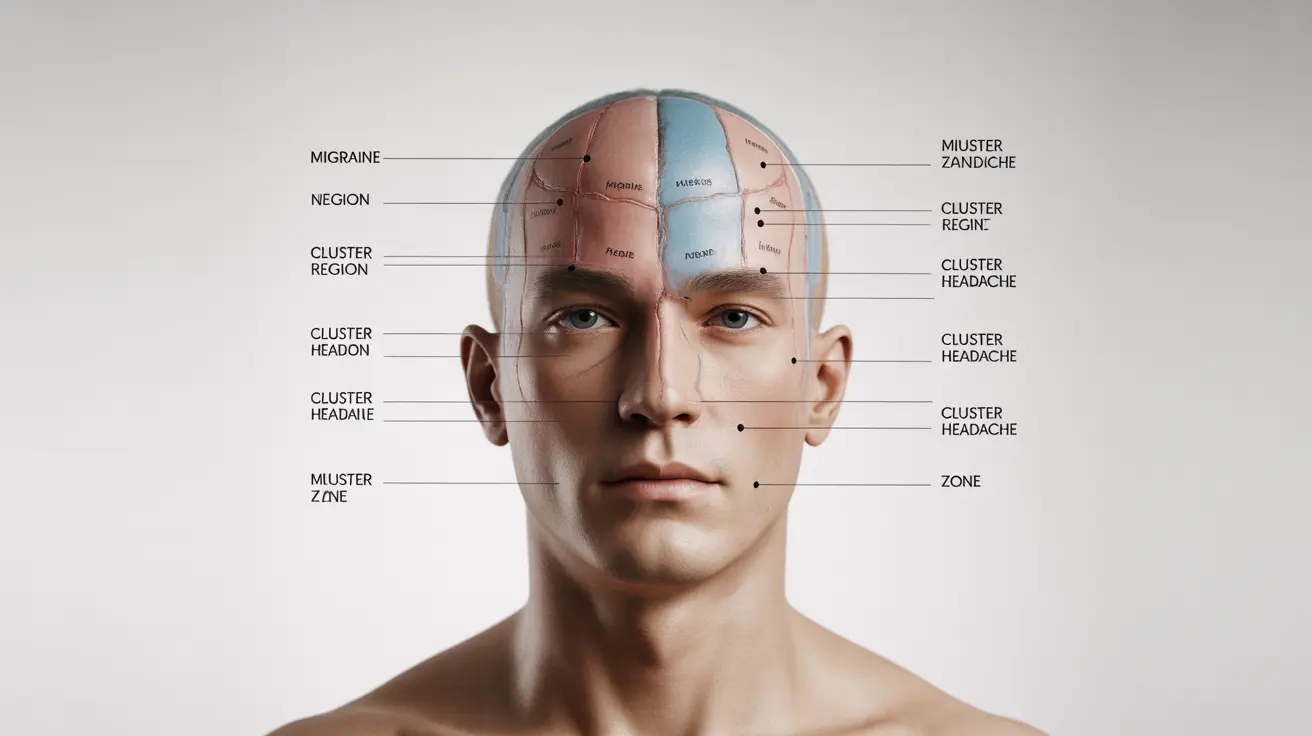Vascular headaches are a group of severe headache disorders that involve changes in blood vessels, affecting millions of people worldwide. These headaches, which include migraines and cluster headaches, can significantly impact daily life and require proper understanding for effective management.
Recognizing the symptoms of vascular headaches is crucial for obtaining appropriate treatment and developing effective coping strategies. This comprehensive guide will help you understand the various types, symptoms, and management options available.
Types of Vascular Headaches and Their Distinct Symptoms
Vascular headaches primarily manifest in two main forms: migraines and cluster headaches. Each type has its unique characteristics and symptom patterns.
Migraine Symptoms
Migraines typically present with these distinctive features:
- Throbbing or pulsating pain, usually on one side of the head
- Sensitivity to light, sound, and sometimes smells
- Nausea and vomiting
- Visual disturbances (aura) in some cases
- Duration of 4-72 hours if untreated
Cluster Headache Symptoms
Cluster headaches have their own unique pattern:
- Intense, burning pain centered around one eye
- Redness and tearing of the affected eye
- Nasal congestion or runny nose on the affected side
- Facial sweating
- Episodes lasting 15 minutes to 3 hours
- Attacks occurring in clusters, often at the same time daily
Common Triggers and Prevention Strategies
Understanding what triggers vascular headaches is essential for prevention. Common triggers include:
- Stress and anxiety
- Hormonal changes
- Certain foods and beverages
- Changes in sleep patterns
- Environmental factors like bright lights or strong odors
- Weather changes
Creating a headache diary can help identify personal triggers and establish effective prevention strategies.
Treatment Approaches for Vascular Headaches
Immediate Relief Methods
Several options are available for managing acute symptoms:
- Over-the-counter pain relievers
- Prescription medications specifically for migraines
- Cold or hot compresses
- Rest in a quiet, dark room
- Breathing exercises and relaxation techniques
Long-term Management Strategies
For ongoing prevention and management, consider:
- Preventive medications prescribed by a healthcare provider
- Lifestyle modifications
- Stress management techniques
- Regular exercise and adequate sleep
- Dietary adjustments
- Alternative therapies like acupuncture or biofeedback
When to Seek Medical Attention
Certain symptoms warrant immediate medical evaluation:
- Sudden, severe headache often described as "thunderclap"
- Headache accompanied by fever, stiff neck, or confusion
- Vision changes or speech difficulties
- Headaches that worsen over time
- New headache patterns after age 50
- Headaches following head injury
Frequently Asked Questions
What are the common symptoms of vascular headaches, including migraines and cluster headaches? Common symptoms include throbbing pain, sensitivity to light and sound, nausea, and visual disturbances for migraines. Cluster headaches typically cause intense pain around one eye with tearing and nasal congestion.
How can I tell the difference between a migraine and a cluster headache? Migraines typically last longer (4-72 hours) and cause throbbing pain with nausea, while cluster headaches are shorter (15 minutes to 3 hours), more severe, and focused around one eye with accompanying eye tearing and nasal symptoms.
What triggers vascular headaches and how can I avoid them? Common triggers include stress, hormonal changes, certain foods, sleep disruption, and environmental factors. Keeping a headache diary and avoiding identified triggers can help prevent attacks.
What treatments are effective for managing symptoms of vascular headaches? Effective treatments include both acute medications (pain relievers, migraine-specific drugs) and preventive measures (lifestyle changes, stress management, preventive medications). The approach should be tailored to individual needs.
When should I see a doctor for a vascular headache or severe recurring headache? Seek medical attention for sudden severe headaches, headaches with fever or neck stiffness, vision changes, speech difficulties, worsening patterns, new headaches after age 50, or headaches following head injury.




